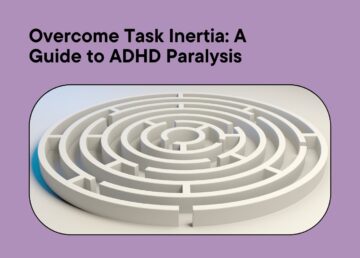
Did you know that February is the International Boost Your Self-Esteem month, aimed to help you find beauty in yourself, boost self-confidence, and appreciate everything you do?
With Valentine’s day lurking around, February is the most appropriate time to show adoration toward those we love the most. However, don’t forget that you deserve love and appreciation, too!
Increase Self-Confidence in a Healthy Way
Belief in your abilities and pride can appear similar at first glance. In some ways, self-confidence and pride are similar concepts – pride refers to satisfaction or pleasure in one’s achievements or qualities.
Healthy pride is associated with a sense of accomplishment. In contrast, unhealthy pride is characterized by an excessive or inflated sense of self-importance and an unwillingness to consider the perspectives or feelings of others.
Here’s a list of things you can do to improve your self-confidence without becoming arrogant or overly proud of yourself.
1 – Make a list of your best qualities
Every person is unique and has different qualities. However, all of us are good and bad in some ways.
Make a list of your best qualities and appreciate them – this is why people love you.
You can also make a list of qualities that you would like to improve and make a plan of how to do it.
2 – Be more assertive
We already mentioned that self-confidence allows you to establish stronger boundaries. In order to get there, start with assertiveness.
Don’t be afraid to say “no” when you already have enough on your plate.
3 – Accept your flaws
All people are flawed. However, we’re usually the ones noticing our flaws the most. It’s okay not to be perfect. Allow yourself to be the person you are, but never forget that you can improve.
4 – Face your fears
What are you most afraid of? Make a deliberate plan for how to overcome or at least face your fears. It will help you be more confident and less scared of uncertainty.
5 – Reflect or journal
Reflecting on past experiences is a great way to grow and perceive the situation through a new lens.
Journaling about your feelings and experiences can help you make better decisions and trust in your abilities.
6 – Ask for feedback
Learning from other people can be highly beneficial – not only do you get a chance to learn about them and their areas of expertise, but you can also learn lots about yourself.
Ask your significant other, friends, and family for honest feedback about your communication, time together, actions, and reactions. Surely, they have good things to say about you!
However, if they give you constructive criticism, take it with an open heart – nobody’s perfect, but you can become a better friend to your loved ones.
The Joys of Boosted Self-Confidence
While it’s great to be appreciated by others, having self-confidence and compassion for yourself can make you a better friend, parent, and partner!
In addition to feeling content with yourself, being confident also has other perks, especially when it comes to interpersonal relationships.
Improved communication
Being able to communicate clearly is the basis of any solid relationship.
Self-confidence provides you with the courage to thoroughly express your thoughts and feelings.
Increased empathy
Having higher self-confidence can help you better understand your peers and partners through clear, consistent communication.
This way, you can develop stronger bonds and be more compassionate instead of reactive when encountering problems.
Therefore, you can also handle conflicts better – you have a stronger understanding of others and become more willing to work through disagreements in constructive, healthy ways.
Firmer boundaries
Being able to establish solid boundaries in any relationship is a sign of mutual respect and appreciation.
Often, people with low self-confidence tend to have their boundaries crossed. Hence, having belief in yourself can help you learn to be more assertive and caring about your well-being.
Self-confidence is not something that can happen overnight – it takes practice. But finding belief in yourself and your abilities can significantly improve your outlook and the quality of your life.





